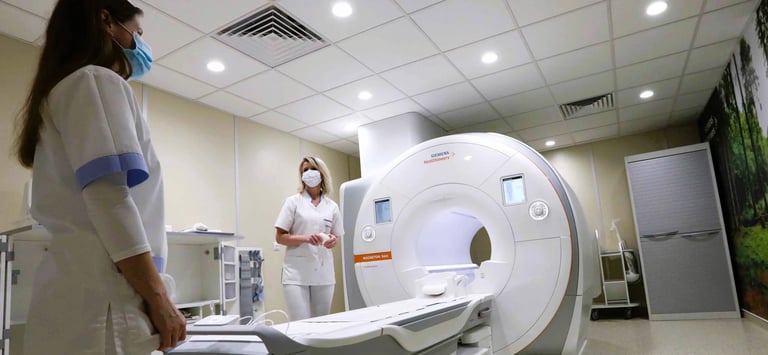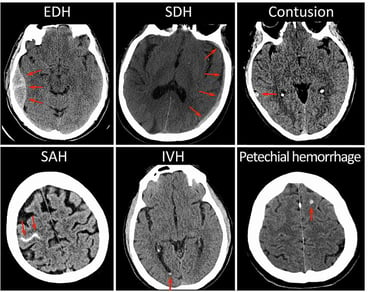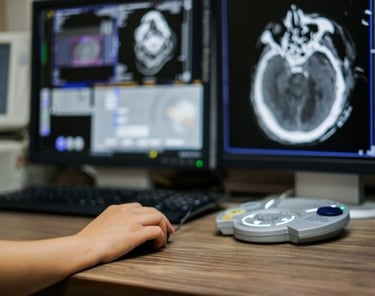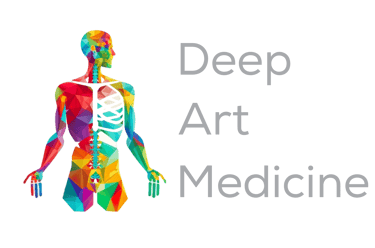
Publications
Our publications listed below :

Creating the Future of Healthcare with AI
AI-Powered Detection of Brain Aneurysms – ITAPA, Hotel Bešeňová













Revolutionizing Diagnostics with AI Advancements
Technological Avant-Garde in Healthcare, Winter Riding Hall, Bratislava Castle

In 2022 and 2023, we focused on preparing documentation for the ethics committee, ensuring that our data collection processes met all necessary ethical standards. The recently signed Memorandum of Cooperation in Banská Bystrica is a significant step forward, made possible by the ethical approval we received for prospective data collection. With this ethical clearance, we are now poised to gather data essential for developing an AI model for prostate cancer detection, starting as soon as the required funding is secured.
PCa: prediction GIF (internal sources)
Date added. 02.2024


Memorandum Signing for Prostate Cancer AI Model Data Collection

Launch of Collaborative Meta-Analysis Project with Jessenius Faculty of Medicine, Comenius University in Martin
We’re thrilled to announce a new collaboration with the Radiology Clinic at Jessenius Faculty of Medicine, Comenius University in Martin, focused on exploring innovative AI applications in brain aneurysm detection. This project’s main objective is a comprehensive meta-analysis of imaging data, a foundational step in assessing the feasibility of developing an AI model that accurately identifies brain aneurysms on radiologic scans..
Date added. 05.2023


Agreement link: https://www.crz.gov.sk/zmluva/7836674/
Aneurysm detection gif: Internal sources

Prostate cancer is one of the leading cancer types affecting men in Slovakia and globally. Despite advancements in diagnostic technologies like bi-parametric MRI (bpMRI), the diagnosis of this disease often depends on a radiologist's experience and subjective manual interpretation. This reliance can lead to inconsistencies, particularly in borderline or ambiguous cases. Additionally, the rising incidence of prostate cancer has intensified demand for efficient diagnostic methods that minimize the time needed for accurate diagnosis.
PCa: prediction GIF (internal sources)
Date added. 09.2022


Starting Internal Research Collaboration with Roosevelt Hospital in Banská Bystrica

Initiating Internal Research in Collaboration with the University Hospital L. Pasteur in Košice
We are excited to announce the launch of our internal research collaboration with University Hospital L. Pasteur in Košice. This foundational project seeks to explore AI applications in diagnosing brain hemorrhages, a critical component in managing Traumatic Brain Injuries (TBIs).This project aims to lay the theoretical groundwork for AI models designed to support brain hemorrhage diagnosis. At TRL 1, our focus is on establishing foundational concepts and identifying the ways an AI model might assist in detecting and classifying different types of brain hemorrhages on CT scans in the future. TBIs are a leading cause of mortality and long-term disability globally. In the acute setting, brain hemorrhages resulting from TBIs require precise and timely diagnosis to guide life-saving interventions.






Date added. 06.2022

Project Motivation
Brain aneurysms are complex and potentially life-threatening conditions, often requiring prompt and precise diagnosis to prevent adverse outcomes. Radiologists face significant challenges in identifying aneurysms, especially in early or subtle presentations, where symptoms may be limited or non-specific. An AI model trained specifically for aneurysm detection could assist radiologists by offering a secondary review, improving diagnostic accuracy and efficiency.
Phase Goals: Meta-Analysis and Feasibility Study
In this initial phase, we are conducting a meta-analysis of existing imaging data, scrutinizing various patterns and characteristics that could inform future model development. This approach allows us to assess the potential and limitations of AI-driven diagnostics for aneurysm detection. The results of this meta-analysis will offer insights into data requirements, model architecture, and the practical application of AI in real-world diagnostic settings.
Long-Term Vision
Should the meta-analysis yield promising results, this research will set the groundwork for a robust AI model aimed at enhancing aneurysm detection accuracy. This work aligns with Deep Art Medicine’s ongoing commitment to advancing healthcare through digital innovation, establishing Slovakia as a leader in AI-powered diagnostics.
This initiative reflects our dedication to collaborative research and opens opportunities for future support to ensure this groundbreaking work continues. We invite interested parties to join us in advancing healthcare innovation.
Meta-Analysis Project with Jessenius Faculty of Medicine, Comenius University in Martin
Date added. 05.2023

Research in Collaboration with Roosevelt Hospital in Banská Bystrica - AI - PCa prostate cancer detection
Research Motivation
Prostate cancer is one of the most common cancers affecting men globally and is a significant healthcare challenge in Slovakia as well. Current diagnostic methods, such as bi-parametric MRI (bpMRI), rely heavily on radiologists' experience and manual image evaluation. This approach, while advanced, can be subjective and prone to errors, particularly when interpreting ambiguous or borderline cases. Rising incidence rates of prostate cancer and increasing demand on healthcare facilities underscore the need for innovative solutions to streamline diagnosis and shorten diagnostic timelines.
Research and Solution Approach
Together with Roosevelt Hospital, Deep Art Medicine is launching an internal research phase that aims to explore how AI can support radiologists by interpreting bpMRI images and histopathological annotations for prostate cancer detection. In the initial TRL 1-2 phase, our research will focus on developing a theoretical foundation and analyzing diagnostic workflows to inform the model's structure and ensure alignment with clinical needs. This foundational phase is critical, as it will allow us to evaluate AI's potential in delivering second-opinion readings that alert physicians to critical areas, enhancing diagnostic consistency and accuracy, especially during high-stress conditions.
Potential Impact
Our AI approach to bpMRI analysis aims to reduce the subjective aspect of prostate cancer diagnostics, potentially increasing diagnostic speed and accuracy. This model will also be optimized for identifying hard-to-detect cases, providing a solid support system for radiologists. Beyond diagnostics, this project reflects Slovakia's growing openness to digital healthcare transformation, driving toward a future where advanced AI technology supports medical professionals in routine care and critical decision-making.
Help Us Continue This Innovative Research
As we embark on this innovative project, additional support is essential for sustaining our momentum. Your contribution will directly impact the development of AI models that could revolutionize prostate cancer diagnostics, making a difference for patients and healthcare providers alike.
Date added. 09.2022

Research Motivation:
Traumatic brain injuries (TBI) are among the most severe global health challenges, often leading to permanent disabilities or fatal outcomes. The ability to deliver timely and accurate diagnosis is critical in shaping patient outcomes, as rapid intervention significantly improves survival and recovery chances. However, TBI diagnostic accuracy is frequently challenged by the demanding nature of emergency settings. Physicians must assess CT images under intense time pressure, where subtle signs of bleeding can be easily missed—especially in high-stress conditions like overnight shifts and after extended hours.
TRL 1 – Establishing a Conceptual Foundation:
In this early TRL 1 phase, our focus is theoretical, aiming to lay down a robust framework to assess AI's potential in enhancing TBI diagnosis. Working closely with clinical experts at L. Pasteur University Hospital, we are evaluating current diagnostic approaches and exploring AI’s role in supporting clinicians with “second read” capabilities, to reduce diagnostic variance. By thoroughly analyzing current AI methods and conceptualizing novel models, our goal is to validate AI’s potential to enhance diagnostic precision and reduce time to decision, particularly for critical and complex cases.
Future Impact:
This foundational research will yield a structured roadmap, which will guide subsequent development stages. Our end goal is to significantly improve the accuracy and efficiency of TBI diagnosis, providing tangible benefits for patients and relieving some of the diagnostic burdens on healthcare professionals. Through this initiative, Slovakia can take a pioneering step in advancing AI-driven solutions in healthcare diagnostics.
Support Our Mission:
As we move forward, further financial support is essential to drive this innovative research. We invite those interested in advancing medical AI solutions to contribute, helping us continue our work and translate these concepts into clinical applications. Your support can help make a lasting impact in medical diagnostics, ultimately benefiting patients, clinicians, and healthcare systems.
This initiative represents a key opportunity for Slovakia to advance modern, innovative solutions in medical diagnostics.
Research in Collaboration with the University Hospital L. Pasteur in Košice - AI Detection of traumatic brain injuries
Date added. 06.2022


